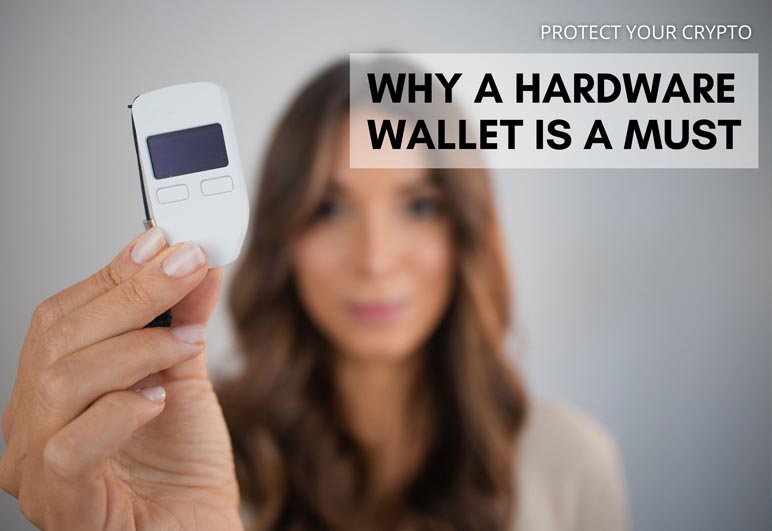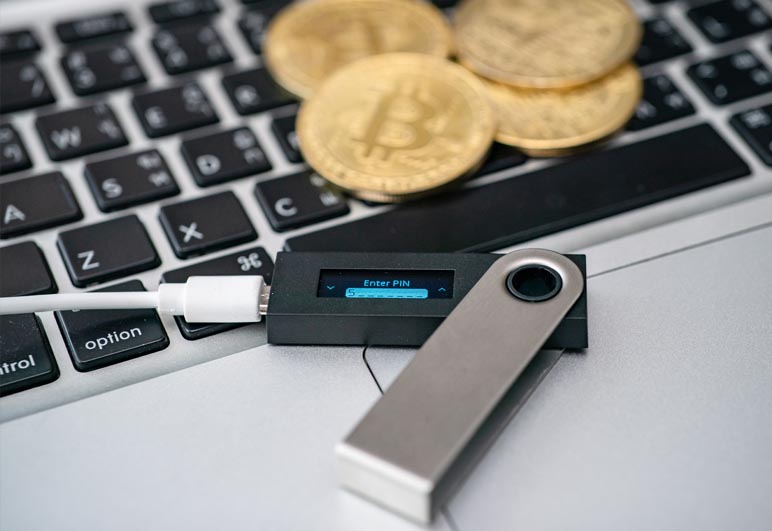Cryptocurrencies like Bitcoin, Ethereum, and Litecoin are becoming more popular every day. As more people invest in these digital assets, it becomes increasingly important to keep them safe and secure. One way to do this is by storing your cryptocurrencies in a hardware wallet.
A cryptocurrency wallet is a software program that allows users to securely store, send, and receive digital currencies. There are two main types of wallets: software wallets and hardware wallets.
Software wallets are digital wallets that are stored on a computer or mobile device. While they are convenient and easy to use, they are also vulnerable to security breaches and hacking attacks.
A hardware wallet is like a mini computer that stores your cryptocurrencies offline, making it much harder for anyone to hack into it. It’s like having your own personal safe that only you can access.
Hardware wallets also come with extra security features, like secret passwords and backup seed phrases, which protect your cryptocurrency even if your device is lost or stolen. They store your private keys offline which means they are much more secure than software wallets because they are not connected to the internet. This offers an additional layer of protection against potential security breaches and hacking attacks.
The Risks of Not Using a Hardware Wallet
1. Security breaches: Online wallets and exchanges are vulnerable to hacking and other security breaches. If your private keys are exposed, hackers can steal your cryptocurrencies.
2. Loss of funds: If online wallets or exchanges shut down or go bankrupt, you could lose all of your hard earned money.
3. Lack of control: Online wallets and exchanges may limit your ability to control your cryptocurrencies. They may place restrictions on how much you can withdraw or how you can use your cryptocurrencies.
4. Privacy concerns: Online wallets and exchanges may require you to provide personal information that could compromise your privacy. Furthermore, your transaction history may be visible to others on the blockchain.
Technical issues: Online wallets and exchanges may experience technical issues or downtime that can prevent you from accessing your funds when you need them.
When owning a hardware wallet, here are some of the dos and don’ts to keep in mind:
✔ Do use a hardware wallet to store your cryptocurrencies. This will provide an additional layer of security and protection against potential security breaches and hacking attacks.
✔ Do keep your recovery phrase safe and secure. In case you lose your wallet or gets stolen, you can still recover your funds.
✔ Do update your wallet software regularly. This will ensure that you have the latest security updates and features.
❌ Don’t share your private key or recovery phrase with anyone. This is your personal information and should be kept private and secure.
❌ Don’t use public Wi-Fi or unsecured networks to access your wallet. This can put your wallet at risk of hacking attacks and security breaches.
If you’re serious about investing in cryptocurrency and want to keep your digital assets safe, a hardware wallet is a must-have investment.
Related: Top 5 Hardware Wallets to Keep Your Crypto Secure




